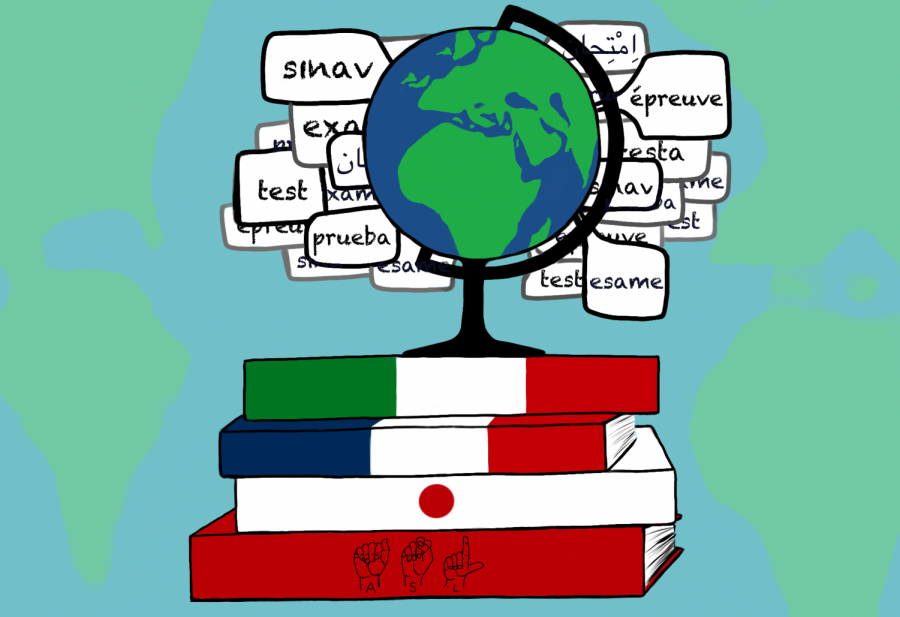Provide more preparatory material for standardized language exams
October 19, 2021
Editor’s Note: This article first appeared as part of the October 8 flipbook.
As someone who is currently juggling studying two different languages on top of school work, preparing for internationally recognized standardized tests can be daunting.
Language proficiency tests –– such as the Japanese-Language Proficiency Test or the Test of Proficiency in Korean –– are multi-level tests designed for individuals in any career to assess their language proficiency and receive international recognition.
Because these tests require copious studying, UT should provide learning aids and preparatory resources for language-learning students.
Proper reference books that are designed to help you ace these exams, such as Nihongo So-matome or TOPIK Research Society, can be pricey. A single textbook that only covers the reading comprehension portion of an exam can easily cost $20 to $30—and that’s only for one level of an exam. Imagine going through this vicious financial cycle of restudying and rebuying new material for the next level of difficulty.
Language classes at UT already often feel like a full-time job to students, but the lack of free resources provided by the University to ace these exams makes mastering a language even more difficult. On top of that, students will not be able to put that recognized achievement on their resumes.
Rather than linked databases to other resources, online access to University-owned preparatory textbooks, flashcards and practice tests can alleviate the financial burden for students.
“I think I spent around 50-something dollars for two books,” psychology senior Yang-Kai Hsieh said.
On top of his psychology coursework, Hsieh is currently pursuing a Japanese language certificate and has taken the Japanese-Language Proficiency Test three times in his home country, Taiwan. Due to the pandemic, Hsieh rarely frequented the library and thus struggled to prepare himself for his next JLPT exam.
“If there are any kinds of online resources, I would really enjoy using them because they are just more convenient. Currently because of the virus, I don’t travel to the library as often anymore,” Hsieh said. “I think there are some online resources where you can take practice exams or (study) something related to the JLPT online. … If UT had that, I think it would help a lot.”
Mary Rader, South Asian Studies librarian, said that UT’s library currently holds some practice material in their collection for languages like Japanese, Chinese or Korean that students can access for studying.
“We don’t collect a lot (of instructional material for those exams) but there are a lot of articles and reviews of those kinds of exams available through our databases.” Rader said.
Rader explained that UT possesses an extensive collection of non-English resources, as well as language learning resources in English and other languages. Rader also introduced the Center for Open Educational Resources and Language Learning, a comprehensive database of language-learning resources for non-commercial use. This website pulls in a plethora of material for 23 different languages, ranging from Arabic to Urdu.
However, the site still lacks targeted preparation for standardized language tests, as well as resources that cater to upper division coursework.
UT needs to provide more online and accessible resources to aid students in their preparation for language proficiency exams.
“We are always interested in suggestions to improve our collections to make sure that they are what people at UT need,” Rader said. “So we encourage people to request materials that teach us what you want.”
The demand for resources like online textbooks and practice tests to be readily available at the PCL is clearly present. It’s now up to UT to respond.
Ma is a journalism and Chinese language and cultures junior from The Woodlands, Texas.











